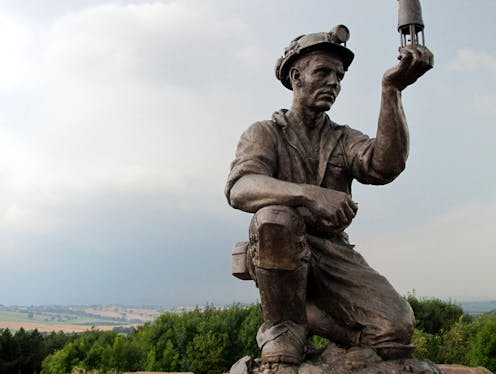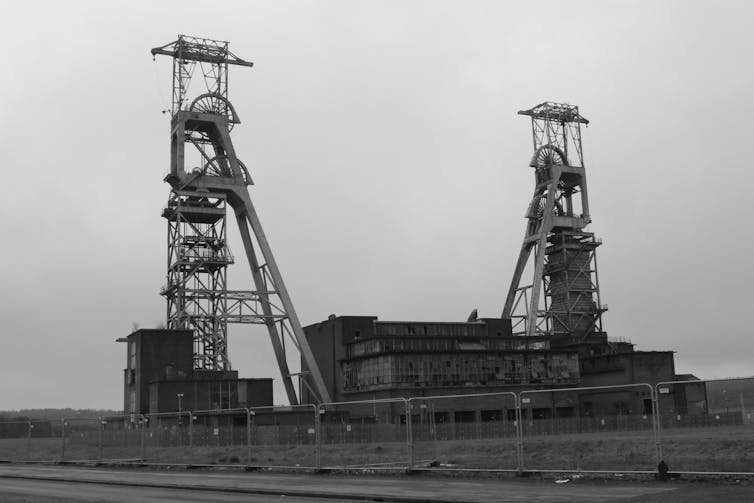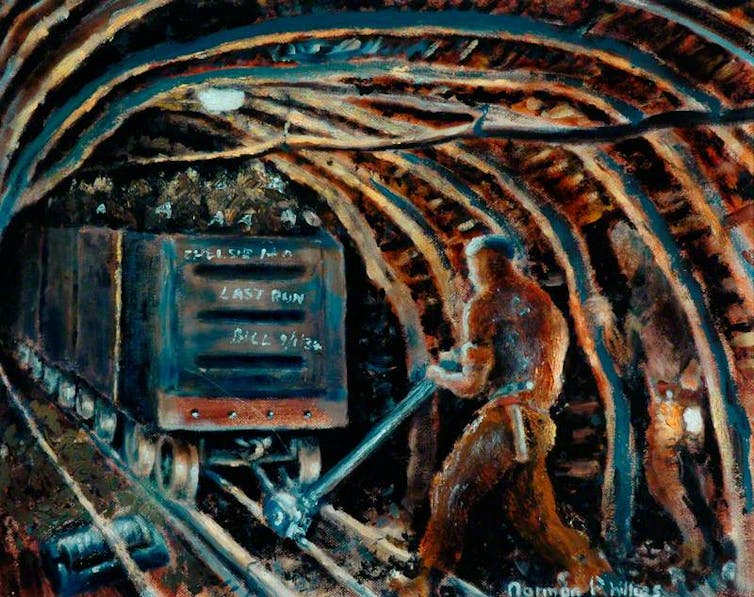
For centuries coal has been mined in England’s East Midlands and it has helped to shape the identity of the region. Many pit communities formed around the collieries and the daily routine of mining affected everybody’s life, not just the life of miners and their families. The last deep coal mine in the region, Thoresby Colliery, closed in 2015, and with it, a way of life is now rapidly disappearing.
The journalist and author Peter Crookston has written about the coal-mining industry in the north east of England. In his book, The Pitmen’s Requiem, Crookston shows that reminders of mining are needed as colliery sites are vanishing and mining artefacts are moving into museums and archives. We believe the same is true for the East Midlands, but this region is frequently omitted from studies and publications. My colleague David Amos and I wanted to ensure that these lives are not forgotten and that memories of “life in coal” are passed on to younger generations.
In The Collier’s Rant, another book about mining in the north east of England, the cultural history academic Robert Colls mentions that much writing about miners is not written by them but by people who had no experience of mining. As such, miners become people who must be spoken for, rather than spoken with.
So to preserve the voices of people who are still around in the East Midlands, it was important for them to have a hand in shaping how and what we remember of mining life. David Amos and I decided to put together an anthology of creative writing, the first collection of poems and short stories about the coal-mining industry in the area. We made sure that the anthology included works by those who had worked down the mines or were family members of miners and wanted to reflect their experiences of mining life.

Writing miners
What binds miners together is a very strong sense of common identity and camaraderie. The embodiment of this feeling is the community – the allotments, the brass bands, the galas, the sports teams, the holidays and the joint days out. In many mining towns, the pit was relied upon to sustain these communities.
Part of preserving this world is by documenting the language of coal miners, known as “pit talk”. Pit talk refers to the vocabulary used to describe the tools they worked with, the places they worked and the different jobs they carried out. These terms differ in the coalfields around the UK and many words are distinctive to a particular area. For example, in the East Midlands, the largest shovel is referred to as an “elephant’s tab”, where “tab” is the local word for “ear”.
Some of the pieces in the anthology are emotional and hard-hitting, writing about accidents and loss. Some are rude or offensive, but many are very funny. Humour was crucial in coal mining, acting as an antidote to dangerous working conditions. For example, in his Ode to Kevin Moore, former miner Mal Johnson writes about a “ganger” (men in charge of moving equipment) in his pit:
Kevin Moore is 34, he can’t walk very fast, a mouse once raced him down the gate, and Kevin – he came last!‘
Foregrounding these voices allows for a truthful representation of mining rather than one that is overly romantic or overly grim. What we get is the reality – the good and the bad.

Coal in the blood
The structure of the book follows themes that cover much of a coal miner’s life, including everyday surroundings and different working practices above and below ground. There are also chapters on mining disasters and rescues as well as the importance of the wider coal communities. This includes different migrants who came from other regions and backgrounds, such as “Bevin Boys”.
These men were named after Ernest Bevin, a Labour politician who served as Minister of Labour and National Service in the coalition government during the second world war. Bevin set up a system where a proportion of young men conscripted into the army were sent to work in the coal mines between 1943 and 1948 to increase the rate of coal production.
Of course, there is a chapter on industrial action and strikes which were a common part of life and, particularly in the East Midlands, still influence contemporary thinking about miners. This includes stories from those who went on strike, those who did not and also a former police officer who worked in Mansfield during the strike period.
The final chapters include work that reviews the process of mine cutbacks and closures and the effects on their communities and coalfield as well as the legacies of coal, where we are today, and what miners’ memories and feelings are now that all the deep mines have gone and the associated way of life is disappearing.
Coal may no longer be king, but coal has changed the way we live. We must document these voices and experiences now because, as former miner Gren Gaskell wrote in his poem For Deep Soft Seam Miners:
Soon we shall all have died, the men who wielded the pick
Breaking the coal to shovel.
Natalie Braber does not work for, consult, own shares in or receive funding from any company or organisation that would benefit from this article, and has disclosed no relevant affiliations beyond their academic appointment.
This article was originally published on The Conversation. Read the original article.







